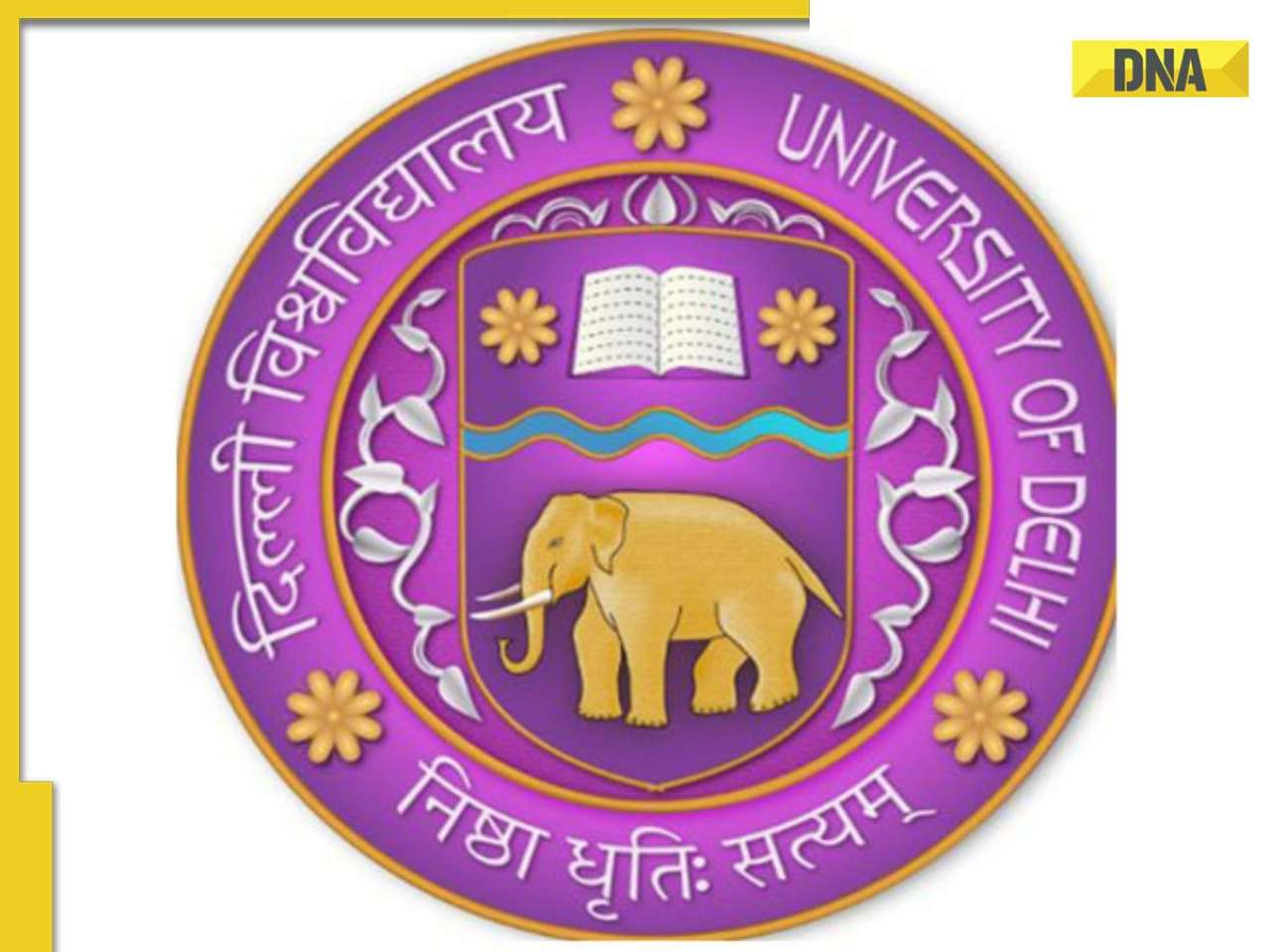A new generation of entrepreneurs are increasingly rejecting safe and stodgy career options in favour of starting their own
ventures.
The choices before young graduates of the country’s top engineering and management schools, till about five years ago, were fairly simple: while some decided to go abroad for higher studies, the majority were snapped up by Indian and foreign companies scouting for talent on campuses. While campus placements continue to be big—not even a full-blown global recession can dent the corporate world’s confidence in these institutes’ ability to shape the country’s brightest—some of the young dreamers have chosen to shift the goalposts a wee bit.
Discussing who’s got the biggest offer is passé, talking about your big idea is in. Terms like start-up, incubation, funding and bootstrapping are slowly gaining place alongside such venerated management terms as recruitment, hiring, packages and placement. While graduates of an earlier era deliberated long and hard at opting out of corporate careers—and that after putting in solid years at them— many of today’s young graduates choose to opt out of placements, go for deferred placements or loosen ties with the corporate world within a couple of years of joining it.
“I felt I could do a lot more than the way I was utilised in my corporate employment,” says Siddhartha G, an IIT Kanpur and IIM Kolkata alumnus who gave up his job months after joining it to pursue his entrepreneurial dreams, in response to the inevitable question: what made you chuck your job?
“I think we’re seeing a fundamental change: people who would never have considered entrepreneurship before, at any age, are now starting ventures or joining start-ups,” says Laura Parkin, director of the Bangalore-based entrepreneurial resource community National Entrepreneurship Network. “Young people who have had the opportunity to be entrepreneurs while they were students—either by starting campus companies, or running entrepreneurship cells, or working in a startup—have developed a level of skill and comfort with entrepreneurship that makes joining a startup or starting a venture a viable and attractive option,” adds Parkin.
Abhishek Humbad of IIM Bangalore fits the bill exactly. He turned entrepreneur even before he had graduated with an engineering degree from BITS (Pilani). Today, he is part of IIM Bangalore’s NS Raghavan Centre for Entrepreneurial Learning (NSRCEL) and CEO of NextGen PMS, an eco-company that offers carbon advisory services and has already—get this—broken even.
“Interest levels in entrepreneurship have gone up dramatically,” says A Suryananrayanan, COO, NSRCEL. “Almost every IIM student has an entrepreneurial dream today, though conversions are not in keeping with the ideas. But just out of college is a good time to start off on your own if you get the right kind of support and resources as you can take bigger risks and don’t have liabilities,” he adds.
Jaya Jha and Abhaya AgarwalPothi.com
Both Jaya and Abhaya have B Tech degrees from IIT Kanpur. While Abhaya graduated in 2003 to initially become a research associate at the Media Lab Asia of IIT Kanpur and went on to join a start-up in the field of handwriting recognition, Jaya graduated a year later to get an MBA degree from IIM Lucknow, going on to join Google India later as associate product manager.
When Abhaya returned from a stint in the US, where he earned an MS in language technologies from Carnegie Mellon university, in 2008, the two decided to set up their own company Pothi.com—a self-publishing and print-on-demand publishing venture.
“We always wanted to be entrepreneurs, but wanted to do so with an idea we felt really passionate about. So, when this idea struck, we decided that it was time,” says Jaya, whose frustrating experience of trying to get a book of her own Hindi poems prompted her to think about self-publishing. They bootstrapped (personal investment in the business; no institutional funding) to start Pothi.com and a year down the line, the venture is self-sustaining. “We were both techies and knew nothing about publishing,” says Jaya. “But not being from the industry ensured that we were not too much in awe with how things have always been done. We were willing to think afresh even at the cost of looking like fools at time.”
Charan Padmaraju, Sudhakar P and Phanindra SamaRedbus
All the founders of redBus—India’s first e-ticketing service for bus travel—were flatmates who used to work for top IT MNCs such as IBM, Texas Instruments and Honeywell. Phanindra Sama, Charan Padmaraju and Sudhakar P, all in their late 20s today, graduated from BITS Pilani in 2002. One Diwali, Phanindra couldn’t reach his hometown for Diwali because he failed to get a bus ticket on time.
That’s when he thought of providing consumers the convenience of booking bus tickets over the Internet (today, they have integrated mobile bookings and direct bookings through 75,000 agents into the system). The start-up that was funded by their own savings in 2005 today handles 10,000 departures a day from all over India, power almost 90% of all organised bus-ticketing and employs 175 people. The company, which got funding from angel investors and was mentored by TiE’s Entrepreneurship Acceleration Program, has a turnover of Rs60 crore. Phani’s advice to young entrepreneurs? “Work at a regular job for some time to gain an understanding of how all departments in companies work.”
![submenu-img]() DU Admission 2024: Delhi University launches admission portal to 71000 UG seats; check details
DU Admission 2024: Delhi University launches admission portal to 71000 UG seats; check details![submenu-img]() Guardians of Cybersecurity: Inside Santosh Kumar Kande's Mission to Protect Corporate Networks
Guardians of Cybersecurity: Inside Santosh Kumar Kande's Mission to Protect Corporate Networks![submenu-img]() Meet man who leads Rs 642000 crore govt company, not from IIT, IIM
Meet man who leads Rs 642000 crore govt company, not from IIT, IIM![submenu-img]() Former RBI Governor Raghuram Rajan to join Congress? He says, ‘Rahul Gandhi is…’
Former RBI Governor Raghuram Rajan to join Congress? He says, ‘Rahul Gandhi is…’![submenu-img]() Maharagni teaser: Kajol looks badass, beats up goons in action-packed first look, fans call her 'lady Singham'
Maharagni teaser: Kajol looks badass, beats up goons in action-packed first look, fans call her 'lady Singham'![submenu-img]() DU Admission 2024: Delhi University launches admission portal to 71000 UG seats; check details
DU Admission 2024: Delhi University launches admission portal to 71000 UG seats; check details![submenu-img]() Meet IAS officer, who became UPSC topper in 1st attempt, sister is also IAS officer, mother cracked UPSC exam, she is...
Meet IAS officer, who became UPSC topper in 1st attempt, sister is also IAS officer, mother cracked UPSC exam, she is...![submenu-img]() Meet student who cleared JEE Advanced with AIR 1, went to IIT Bombay but left after a year due to..
Meet student who cleared JEE Advanced with AIR 1, went to IIT Bombay but left after a year due to..![submenu-img]() Meet man who used to walk to work, eat free meals, left high-paying corporate job at 29 due to...
Meet man who used to walk to work, eat free meals, left high-paying corporate job at 29 due to...![submenu-img]() Meet woman who left high-paying job as NASA scientist to crack UPSC exam twice, became IRS then IPS officer with AIR…
Meet woman who left high-paying job as NASA scientist to crack UPSC exam twice, became IRS then IPS officer with AIR…![submenu-img]() DNA Verified: Did Kangana Ranaut party with gangster Abu Salem? Actress reveals who's with her in viral photo
DNA Verified: Did Kangana Ranaut party with gangster Abu Salem? Actress reveals who's with her in viral photo![submenu-img]() DNA Verified: New Delhi Railway Station to be closed for 4 years? Know the truth here
DNA Verified: New Delhi Railway Station to be closed for 4 years? Know the truth here![submenu-img]() DNA Verified: Did RSS chief Mohan Bhagwat praise Congress during Lok Sabha Elections 2024? Know the truth here
DNA Verified: Did RSS chief Mohan Bhagwat praise Congress during Lok Sabha Elections 2024? Know the truth here![submenu-img]() DNA Verified: Is CAA an anti-Muslim law? Centre terms news report as 'misleading'
DNA Verified: Is CAA an anti-Muslim law? Centre terms news report as 'misleading'![submenu-img]() DNA Verified: Lok Sabha Elections 2024 to be held on April 19? Know truth behind viral message
DNA Verified: Lok Sabha Elections 2024 to be held on April 19? Know truth behind viral message![submenu-img]() Avneet Kaur shines in navy blue gown with shimmery trail at Cannes 2024, fans say 'she is unstoppable now'
Avneet Kaur shines in navy blue gown with shimmery trail at Cannes 2024, fans say 'she is unstoppable now'![submenu-img]() Assamese actress Aimee Baruah wins hearts as she represents her culture in saree with 200-year-old motif at Cannes
Assamese actress Aimee Baruah wins hearts as she represents her culture in saree with 200-year-old motif at Cannes ![submenu-img]() Aditi Rao Hydari's monochrome gown at Cannes Film Festival divides social media: 'We love her but not the dress'
Aditi Rao Hydari's monochrome gown at Cannes Film Festival divides social media: 'We love her but not the dress'![submenu-img]() AI models play volley ball on beach in bikini
AI models play volley ball on beach in bikini![submenu-img]() AI models set goals for pool parties in sizzling bikinis this summer
AI models set goals for pool parties in sizzling bikinis this summer![submenu-img]() DNA Explainer: Why was Iranian president Ebrahim Raisi, killed in helicopter crash, regarded as ‘Butcher of Tehran’?
DNA Explainer: Why was Iranian president Ebrahim Raisi, killed in helicopter crash, regarded as ‘Butcher of Tehran’?![submenu-img]() DNA Explainer: Why did deceased Iranian President Ebrahim Raisi wear black turban?
DNA Explainer: Why did deceased Iranian President Ebrahim Raisi wear black turban?![submenu-img]() Iran President Ebrahim Raisi's death: Will it impact gold, oil prices and stock markets?
Iran President Ebrahim Raisi's death: Will it impact gold, oil prices and stock markets?![submenu-img]() Haryana Political Crisis: Will 3 independent MLAs support withdrawal impact the present Nayab Saini led-BJP government?
Haryana Political Crisis: Will 3 independent MLAs support withdrawal impact the present Nayab Saini led-BJP government?![submenu-img]() DNA Explainer: Why Harvey Weinstein's rape conviction was overturned, will beleaguered Hollywood mogul get out of jail?
DNA Explainer: Why Harvey Weinstein's rape conviction was overturned, will beleaguered Hollywood mogul get out of jail?![submenu-img]() Maharagni teaser: Kajol looks badass, beats up goons in action-packed first look, fans call her 'lady Singham'
Maharagni teaser: Kajol looks badass, beats up goons in action-packed first look, fans call her 'lady Singham'![submenu-img]() Shikhar Dhawan on what made him turn talk show host for Dhawan Karenge, addresses Kapil Sharma comparison | Exclusive
Shikhar Dhawan on what made him turn talk show host for Dhawan Karenge, addresses Kapil Sharma comparison | Exclusive![submenu-img]() Panchayat season 3 public review: Fans hail Neena Gupta, Jitendra Kumar's 'emotional, unbeatable series', call it banger
Panchayat season 3 public review: Fans hail Neena Gupta, Jitendra Kumar's 'emotional, unbeatable series', call it banger![submenu-img]() Meet superstar who gave Bollywood's first Rs 100 crore film, quit acting at peak of her career, married man with..
Meet superstar who gave Bollywood's first Rs 100 crore film, quit acting at peak of her career, married man with..![submenu-img]() 'Is she engaged?': Avneet Kaur confuses fans as she flaunts ring, says 'can’t wait to tell the world about this union'
'Is she engaged?': Avneet Kaur confuses fans as she flaunts ring, says 'can’t wait to tell the world about this union'![submenu-img]() Anant Ambani-Radhika Merchant pre-wedding bash: Here's what Mukesh Ambani's guests will get to eat during ceremony
Anant Ambani-Radhika Merchant pre-wedding bash: Here's what Mukesh Ambani's guests will get to eat during ceremony![submenu-img]() Mukesh Ambani, Nita Ambani to celebrate Akash, Shloka's daughter Veda's birthday on cruise, check theme, other details
Mukesh Ambani, Nita Ambani to celebrate Akash, Shloka's daughter Veda's birthday on cruise, check theme, other details ![submenu-img]() Terra and Mare: Hidden meaning behind Mukesh Ambani's son Anant Ambani-Radhika Merchant's second pre-wedding bash theme
Terra and Mare: Hidden meaning behind Mukesh Ambani's son Anant Ambani-Radhika Merchant's second pre-wedding bash theme![submenu-img]() 'Simple, boring resume can get you...,' says former recruiter with Google, Apple, Samsung
'Simple, boring resume can get you...,' says former recruiter with Google, Apple, Samsung![submenu-img]() Mukesh Ambani's son Anant-Radhika Merchant pre wedding bash: Cruise set sails from Malta not from Miami due to...
Mukesh Ambani's son Anant-Radhika Merchant pre wedding bash: Cruise set sails from Malta not from Miami due to...

























































)
)
)
)
)
)